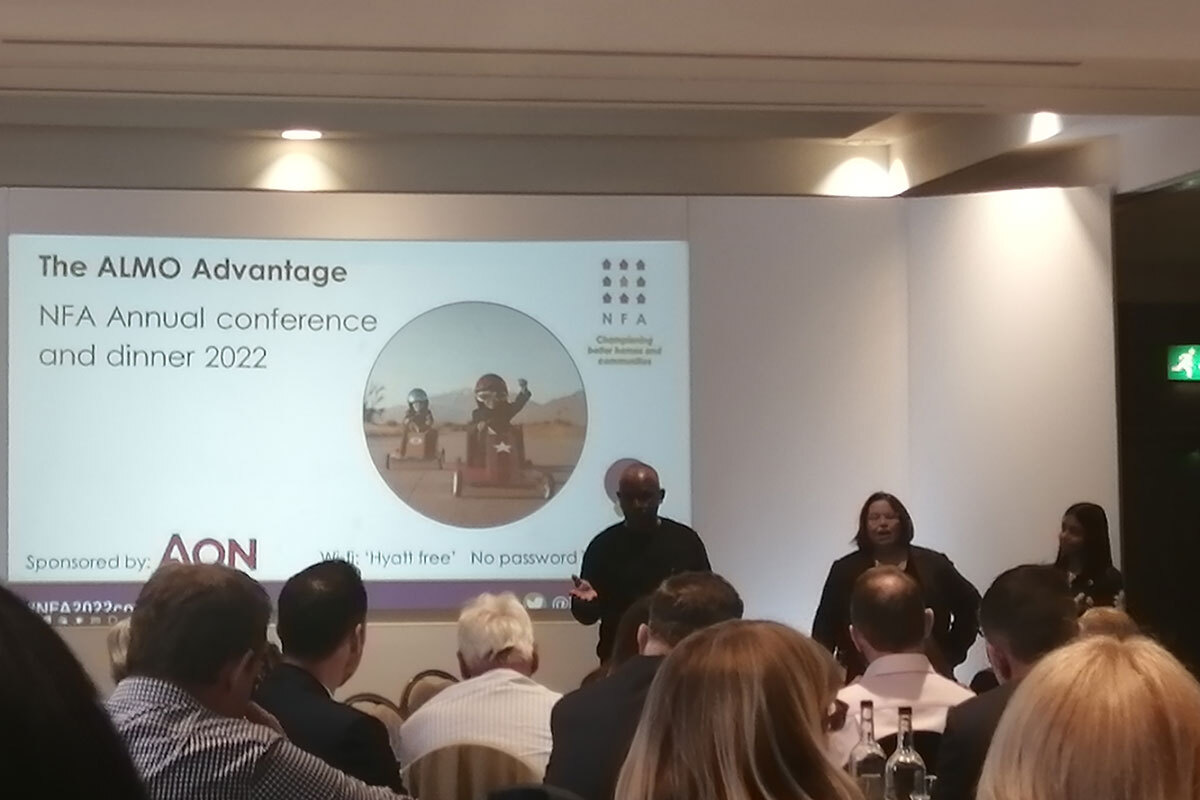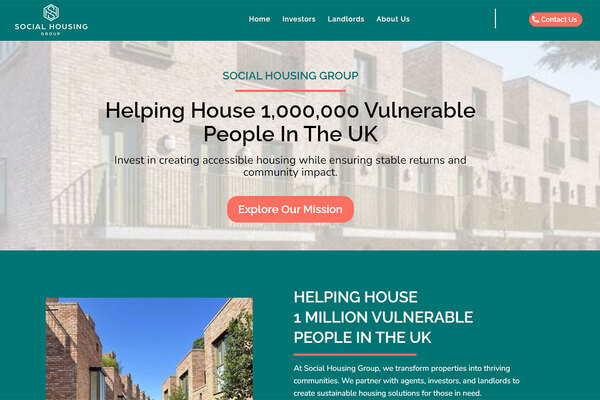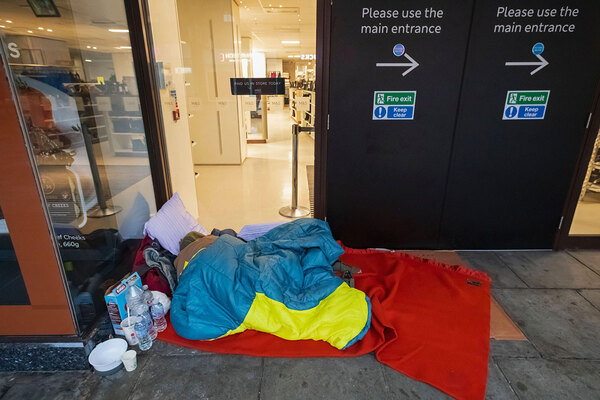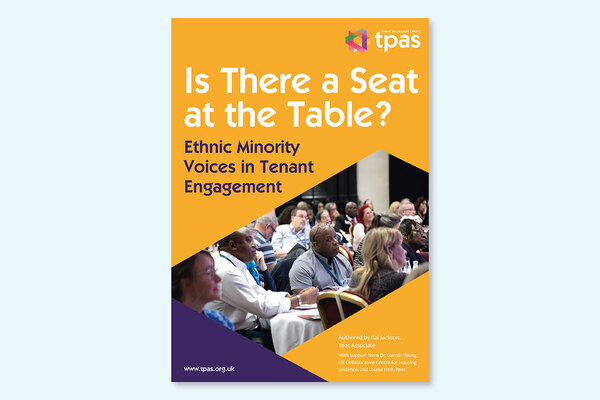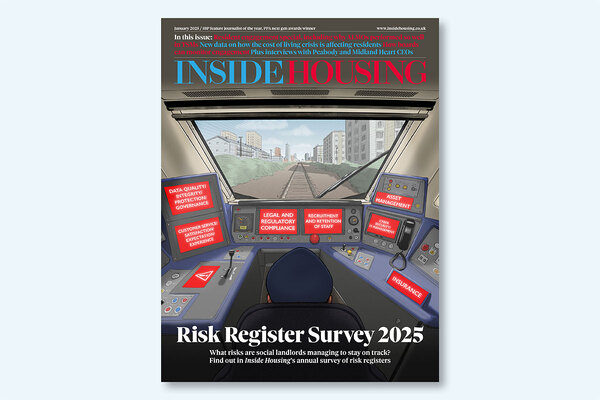You are viewing 1 of your 1 free articles
 Rick Henderson
Rick HendersonRick Henderson is CEO of Homeless Link the national membership body for the homelessness sector in England with over 800 members. Prior ...more
Burned-out homelessness service staff are leaving to take up better salaries in retail and haulage
Staff burnout is a concern for more than three in four homelessness services, Homeless Link’s annual review has found. If concerted action isn’t taken, Rick Henderson argues, it will be those experiencing homelessness who will suffer most
During my time as chief executive of Homeless Link, I’ve had the privilege of visiting homelessness services across the country. Each time I do, I leave with a sense of awe at the compassion and dedication of those working on the frontline.
From their patience in developing trusting relationships with people who have often experienced significant trauma, to their resolve and tenacity in negotiating a stretched system with long waiting lists and minimal affordable housing, homelessness workers dedicate their working lives to improving the lot of some of society’s most vulnerable people.
“This constant churn of employees, coupled with difficulties in finding replacements, leaves services in a seemingly endless battle to plug gaps, often relying on expensive, short-term agency staff”
The incredible work of the homelessness sector during the pandemic has been well documented, but now services across the country are reporting how burnout, job insecurity (often due to short-term contracts) and comparatively low pay have all led to staff leaving the sector.
This is backed up by what we found in Homeless Link’s latest annual review* of homelessness services in England.
The services that responded reported an average of 9% vacant posts; 12% reported having over a quarter of posts vacant.
At the same time, 78% of the 327 organisations that responded agreed that burnout is a concern for their staff and 72% agreed that it’s becoming more difficult to recruit staff. Looking into the future, nearly half of respondents agreed that they’re concerned about their ability to recruit a full staff team.
“Some of our member organisations are already reporting that staff are moving to the retail and haulage sectors for better salaries”
This constant churn of employees, coupled with difficulties in finding replacements, leaves services in a seemingly endless battle to plug gaps, often relying on expensive, short-term agency staff. This situation is clearly not conducive to developing the trusting relationships needed to provide meaningful support to people experiencing homelessness and brings into jeopardy the government’s target of ending rough sleeping in England by 2024.
The soon-to-be-announced government Rough Sleeping Initiative funding will span three years, helping to provide some stability to local authorities and charities.
But the impact of the cost of living crisis could mean the situation gets worse before it gets better, especially with some of our member organisations already reporting that staff are moving to the retail and haulage sectors for better salaries. It’s no wonder that the most raised concerns of our member organisations in our latest intelligence are financial risk and staffing levels.
While pay levels are clearly a key issue, from my conversations with homelessness organisations, there is also a prevailing feeling that homelessness workers are not properly recognised for the complexity of the work they do.
Whether it’s an outreach worker engaging people in the middle of the night, or a domestic abuse lead going above and beyond for vulnerable women, from afar these roles are not given the same recognition as similar careers in the health and social care sector, despite homelessness workers often supporting people deemed too complex for mainstream health services.
At the same time, there isn’t a clear career path in and through the sector to both attract and retain staff.
This is a clearly a complex issue that requires action on multiple fronts, from doing more to attract staff to the sector, to raising the issue with government.
“For too long we have relied on homelessness workers’ sense of vocation in retaining and recruiting staff”
At Homeless Link we are leading on, or involved in, a number of projects to help address the above concerns, including piloting the first official accreditation for homelessness workers together with the Chartered Institute of Housing’s Housing Academy; promoting homelessness as a career path through our jobs board; hosting our upcoming Working Well conference in July; as well as exploring other short and long-term solutions in partnership with Bloomberg Associates, London Councils, the Greater London Authority and St Mungo’s.
But, to support this work, we need up-to-date data from as many homelessness organisations (local authorities and third sector) as possible as to the issues you are facing and what actions you think need to be taken.
That’s why we’ve just launched a new Workforce Survey, for frontline workers and managers upwards. If you work for a homelessness service/organisation, please fill it in and share it with your colleagues.
For too long we have relied on homelessness workers’ sense of vocation in retaining and recruiting staff, but with stretched budgets and record inflation, it’s no longer enough. Creating a more stable home for homelessness staff will be critical to building on the work of the pandemic and continuing to reduce homelessness and rough sleeping in England.
*Research conducted December 2021 and January 2022
Rick Henderson, chief executive, Homeless Link
Sign up for our daily newsletter
Already have an account? Click here to manage your newsletters

